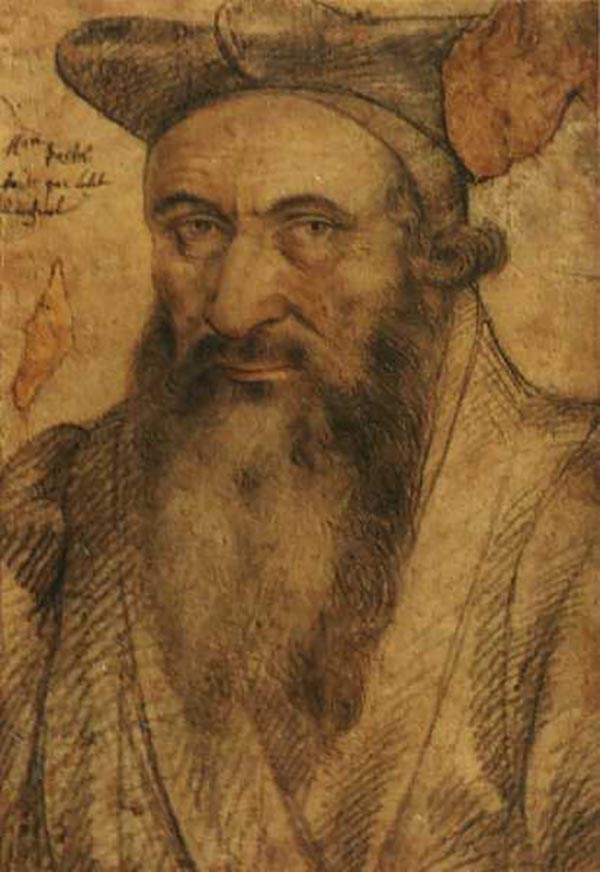Guillaume Postel (March 25, 1510 – September 6, 1581) was a French linguist, astronomer, Christian Kabbalist, diplomat, polyglot, professor, religious universalist, and writer. He was born in Normandy, educated in Paris, and during his time there met Ignatius of Loyola and many of the founders of the Society of Jesus, retaining a lifelong affiliation with them (although he did not take vows with the order.) He was an adept linguist, focusing primarily on Semitic languages as well as Greek and Latin; this facility brought him to the attention of the French court, who would tap him for diplomatic duties. He attended the 1536 embassy of Jean de La Forêt to the Ottoman sultan Suleiman the Magnificent as a translator; Postel also acquired Ottoman manuscripts for the royal library, which remain in the Bibliothèque Nationale. Postel's works range from anaylses of Hebrew characters on Roman era coins to critiques of Protestantism, descriptions of Turkish society, studies of universal traits in world religions, and arguments for the unification of all Christian sects. His interests also impinged on cartography, partly stemming from his collection of manuscripts from the Holy Land and Syria. He published a geographical work in 1557 De Universitate Liber and appears to have drawn a polar projection map, although this was not published. He expanded on his work in Cosmographicae Disciplinae Compendium. Neither of these works contained any but the smallest and most diagrammatic maps, but in Cosmographicae, Postel clearly set out his geographical ideas, including the naming of an Australian continent - Chasdia - distinctly separate from both Asia and Africa. Cosmographicae included an index of place names which would inform his 1581 world map, Polo aptata Nova Charta Universi. This map is unacquirable - it survives in only a single confirmed example - would influence several sixteenth century mapmakers, none so apparently as Cornelis de Jode in his 1593 polar projection world map.
Postel would also travel extensively in Central Europe and Italy, all the while building his manuscript collection, and translating many works. His ideas on universalism would combine with a conviction that he was experiencing prophetic visions, and that he was destined to become a unifier of all the world's religions. His publication of these ideas would put him before the Inquisition. Allies amongst his prosecutors were able to find him guilty of insanity, winning him imprisonment in preference of the execution a finding of heresy would result in. He would eventually be freed, but the 1566 exorcisms of Nicole Aubrey in Laon affected him to such a degree that he felt compelled to publish an account of it. In it, he repeated his insistence upon the interrelatedness of all parts of the universe and his own role in the unification of the world's faiths. As a result, he was returned to house arrest and spent the rest of his life confined to a monastery.
Postel would also travel extensively in Central Europe and Italy, all the while building his manuscript collection, and translating many works. His ideas on universalism would combine with a conviction that he was experiencing prophetic visions, and that he was destined to become a unifier of all the world's religions. His publication of these ideas would put him before the Inquisition. Allies amongst his prosecutors were able to find him guilty of insanity, winning him imprisonment in preference of the execution a finding of heresy would result in. He would eventually be freed, but the 1566 exorcisms of Nicole Aubrey in Laon affected him to such a degree that he felt compelled to publish an account of it. In it, he repeated his insistence upon the interrelatedness of all parts of the universe and his own role in the unification of the world's faiths. As a result, he was returned to house arrest and spent the rest of his life confined to a monastery.



